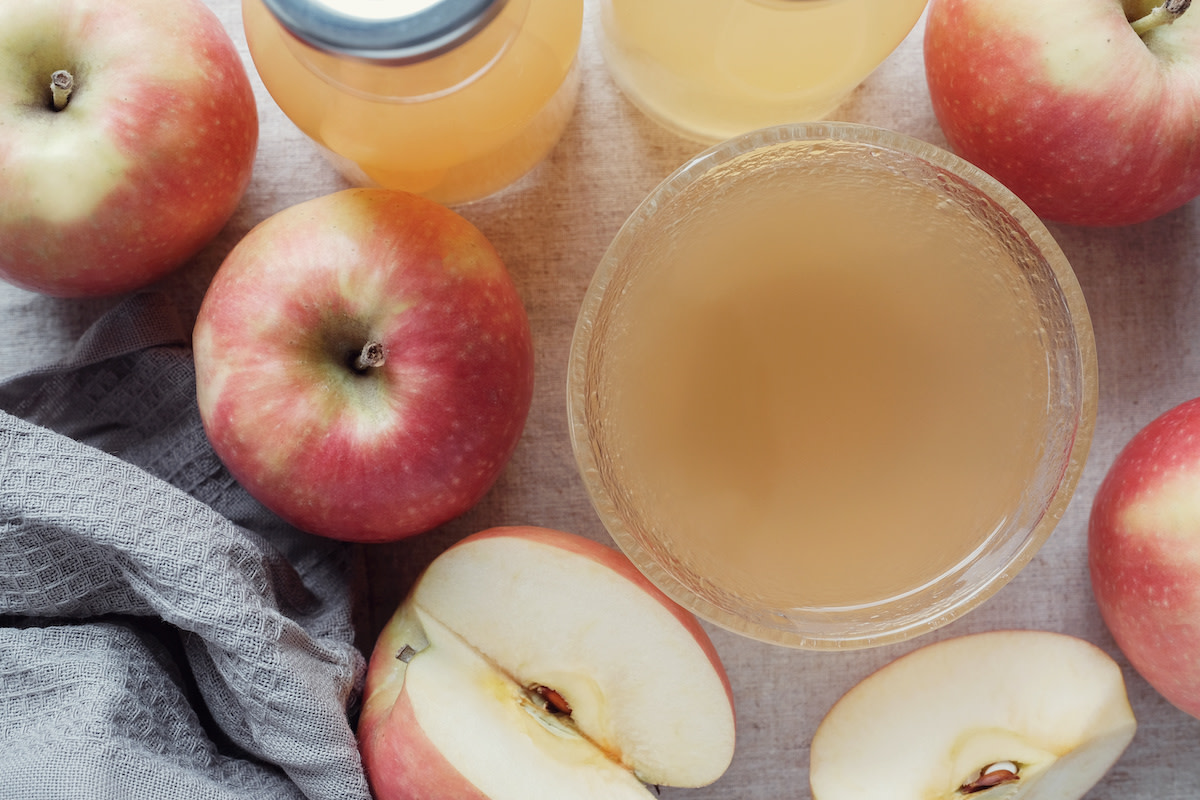What Is the Mother in Apple Cider Vinegar? ACV Explained
Written by MasterClass
Last updated: Feb 14, 2022 • 3 min read
The production of apple cider vinegar uses a mother—a mixture of yeast and bacteria as a result of the vinegar’s fermentation process. Learn more about this unique aspect of apple cider vinegar, including considerations and potential benefits or downsides.
Learn From the Best
What Is Apple Cider Vinegar?
Apple cider vinegar (ACV) results from fermenting apple juice. A probiotic-rich, low-calorie, low-carbohydrate, low-cholesterol ingredient, apple cider vinegar has a sweet-tart flavor, owing to the sugar in the apples and the tang of the vinegar. In the culinary world, chefs use ACV in salad dressings, marinades, baked goods, and other dishes.
What Is the Mother in Apple Cider Vinegar?
Fermenting apple juice produces apple cider vinegar, or ACV, in addition to a “mother”—a byproduct of yeast and bacteria. To make ACV, manufacturers add yeast to apple juice to break down the natural sugars, resulting in alcohol. Next, they add specific bacteria to convert the alcohol to acetic acid, the foundation of vinegar. This bacteria—which appears as a cloudy, spongy, or stringy mass—contains probiotics, enzymes, and nutrients. Some manufacturers choose to filter ACV to remove the mother, while others bottle the concoction as is and label the product accordingly.
Apple Cider Vinegar With Mother vs. Filtered Apple Cider Vinegar
A few differences exist between filtered apple cider vinegar (ACV) and apple cider vinegar with the mother (a mass of bacteria that forms during fermentation), which you can also call unpasteurized, unfiltered, or raw apple cider vinegar.
- Filtered ACV has a weaker apple flavor. The filtering process removes the mother but also some of the natural apple flavor. For culinary purposes, using unfiltered apple cider vinegar produces better flavor.
- ACV with the mother contains natural probiotics. Removing the mother also removes the threads of probiotic-dense and enzyme-rich bacteria, which might present some health benefits.
- ACV with the mother can be a starter for other vinegars. It’s possible to use unfiltered apple cider vinegar to start other homemade vinegars—the mother will help you kickstart the fermentation process, including the production of yeast and beneficial bacteria. It’s not possible to start vinegar from unfiltered ACV in the same way.
Potential Benefits of Consuming Apple Cider Vinegar
Although scientists have not conclusively proven drinking apple cider vinegar has health benefits, enthusiasts claim it leads to a number of positive side effects. These potential outcomes include balancing blood sugar levels, eliminating harmful bacteria from the digestive tract, promoting heart health, facilitating weight loss, circulating antioxidants, easing the effects of heartburn, and boosting the immune system. It’s advisable to consult with your doctor before adding home remedies, such as the consumption of apple cider vinegar, to your diet or wellness routine.
4 Potential Negative Effects of Consuming Apple Cider Vinegar
While the purported health benefits of apple cider vinegar are numerous—albeit inconclusive—the potential downsides of consuming ACV are more concrete.
- 1. Damage to the esophagus: Consuming undiluted apple cider vinegar has the potential to cause damage to your esophagus and digestive system due to its acidity. Always dilute apple cider vinegar with warm water before ingesting it to avoid this outcome.
- 2. Excess gas: Consuming large amounts of apple cider vinegar can cause excess gas and bloating. People affected by type 1 diabetes and diabetic gastroparesis might be particularly susceptible to these effects.
- 3. Skin irritation: Unfiltered apple cider vinegar makes its way into toners and other skincare products. For many skin types, this presents no issues; however, those with sensitive skin might experience redness, itching, or a burning sensation when they place ACV directly on their skin.
- 4. Tooth enamel erosion: Regularly consuming acidic foods, such as vinegar, runs the risk of eroding tooth enamel. It’s advisable to eat and drink acidic foods in small amounts to avoid this issue.
4 Culinary Uses for Apple Cider Vinegar
Here are five ways to use apple cider vinegar while cooking:
- 1. ACV shots: For a flavor similar to kombucha, mix organic apple cider vinegar with the mother, warm water, and honey. For a spicier version, add a pinch of cayenne pepper, cinnamon, or ginger.
- 2. Food preservative: Use apple cider vinegar in pickle brines to preserve cucumbers, onions, garlic, green beans, and other vegetables.
- 3. Marinade: Apple cider vinegar adds flavor to marinades. Combine it with olive oil, salt, pepper, and other seasonings according to whatever flavor profile you desire.
- 4. Salad dressing: Mix apple cider vinegar with a flavorful oil, such as olive oil or sesame oil, plus dried herbs and spices. The addition of honey or maple syrup will complement the acidity of the vinegar.
Want to Learn More About Cooking?
Become a better chef with the MasterClass Annual Membership. Gain access to exclusive video lessons taught by the world’s best, including Alice Waters, Gabriela Cámara, Niki Nakayama, Chef Thomas Keller, Gordon Ramsay, Yotam Ottolenghi, Dominique Ansel, and more.
